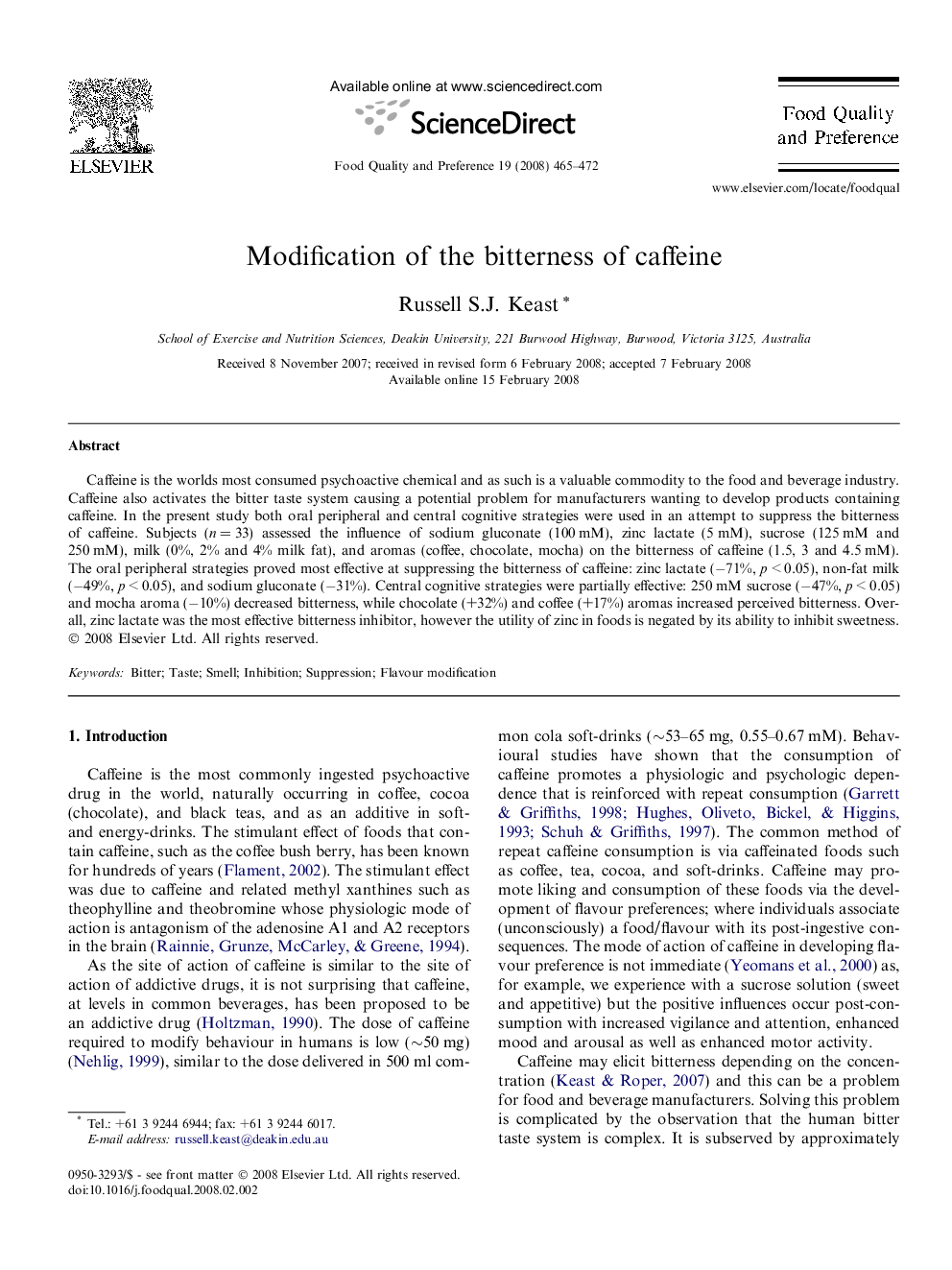| کد مقاله | کد نشریه | سال انتشار | مقاله انگلیسی | نسخه تمام متن |
|---|---|---|---|---|
| 4318097 | 1290635 | 2008 | 8 صفحه PDF | دانلود رایگان |

Caffeine is the worlds most consumed psychoactive chemical and as such is a valuable commodity to the food and beverage industry. Caffeine also activates the bitter taste system causing a potential problem for manufacturers wanting to develop products containing caffeine. In the present study both oral peripheral and central cognitive strategies were used in an attempt to suppress the bitterness of caffeine. Subjects (n = 33) assessed the influence of sodium gluconate (100 mM), zinc lactate (5 mM), sucrose (125 mM and 250 mM), milk (0%, 2% and 4% milk fat), and aromas (coffee, chocolate, mocha) on the bitterness of caffeine (1.5, 3 and 4.5 mM). The oral peripheral strategies proved most effective at suppressing the bitterness of caffeine: zinc lactate (−71%, p < 0.05), non-fat milk (−49%, p < 0.05), and sodium gluconate (−31%). Central cognitive strategies were partially effective: 250 mM sucrose (−47%, p < 0.05) and mocha aroma (−10%) decreased bitterness, while chocolate (+32%) and coffee (+17%) aromas increased perceived bitterness. Overall, zinc lactate was the most effective bitterness inhibitor, however the utility of zinc in foods is negated by its ability to inhibit sweetness.
Journal: Food Quality and Preference - Volume 19, Issue 5, July 2008, Pages 465–472